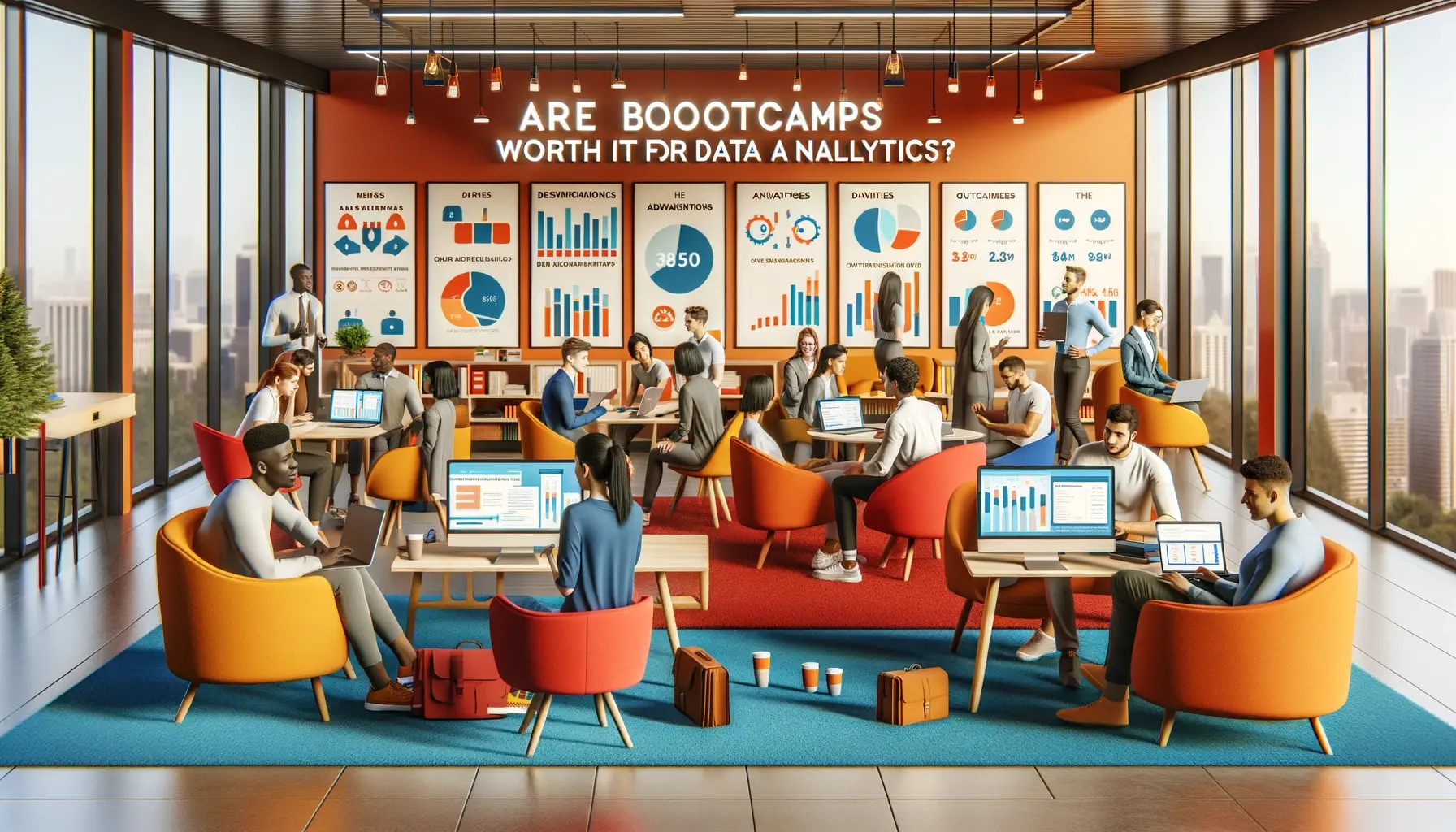6 min read
Are Bootcamps Worth It for Data Analytics?
Introduction
4 min read
![]() The Amazing Team at Skills Data Analytics
:
Mar 14, 2024 5:24:53 AM
The Amazing Team at Skills Data Analytics
:
Mar 14, 2024 5:24:53 AM
Data analytics has the potential to greatly enhance healthcare outcomes by providing valuable insights and information. By analyzing large amounts of healthcare data, such as electronic health records, medical imaging, and patient monitoring data, healthcare professionals can identify trends, patterns, and correlations that can lead to improved diagnoses and treatment plans. With the help of data analytics, healthcare providers can make more informed decisions and provide personalized care to patients, resulting in enhanced healthcare outcomes.
Additionally, data analytics can also be used to predict and prevent adverse events. By analyzing historical data and using predictive modeling techniques, healthcare professionals can identify patients who are at higher risk for certain conditions or complications. This enables proactive interventions and preventive measures to be taken, reducing the likelihood of adverse events and improving patient outcomes.
Data analytics has the power to transform the healthcare industry by revolutionizing the way healthcare organizations operate and deliver care. With the use of data analytics, healthcare providers can gain insights into patient populations, demographics, and disease patterns, enabling them to develop targeted interventions and preventive strategies.
This can lead to more efficient and effective healthcare delivery, reducing costs and improving patient outcomes.
Furthermore, data analytics can also facilitate the shift towards value-based care. By analyzing healthcare data, healthcare organizations can identify areas for improvement and implement evidence-based practices to enhance care quality and patient satisfaction.
This can result in better health outcomes for patients and improved financial performance for healthcare organizations.
Data analytics has a significant impact on healthcare delivery by enabling healthcare organizations to optimize their operations and workflows. By analyzing data on patient flow, resource utilization, and wait times, healthcare providers can identify bottlenecks and inefficiencies in their processes and make data-driven decisions to improve the delivery of care.
Moreover, data analytics can also help healthcare organizations manage their resources more effectively. By analyzing data on supply chain management, inventory levels, and demand forecasting, healthcare providers can ensure that they have the right resources at the right time, reducing waste and improving efficiency.
Additionally, data analytics can support population health management by identifying high-risk patient populations and designing targeted interventions. By analyzing data on social determinants of health, healthcare organizations can develop strategies to address health disparities and improve health outcomes in underserved communities.
Data-driven insights derived from data analytics can greatly enhance patient care. By analyzing patient data, healthcare providers can gain a deeper understanding of individual patients' health conditions, preferences, and needs. This enables personalized care plans to be developed, and tailored to the specific requirements of each patient.
Furthermore, data analytics can also improve care coordination and communication among healthcare providers. By integrating data from different sources and analyzing it in real-time, healthcare professionals can collaborate more effectively and make timely and informed decisions, resulting in better coordinated and seamless care for patients.
In addition, data analytics can also support patient engagement and empowerment. By providing patients with access to their own health data and personalized insights, they can become active participants in their own care and make informed decisions about their health and wellness.
Data Analyst Jobs Entry Level Opportunities
Real-time data analysis is a powerful tool for improving operational efficiency in healthcare organizations. By analyzing data in real-time, healthcare providers can identify bottlenecks, inefficiencies, and opportunities for improvement as they happen, enabling them to make immediate adjustments and optimize their operations.
Real-time data analysis can also help healthcare organizations monitor and manage patient flow, resource allocation, and wait times more effectively. By analyzing real-time data on patient volumes, staffing levels, and bed availability, healthcare providers can ensure that resources are allocated efficiently and that patients receive timely and appropriate care.
Moreover, real-time data analysis can also enhance patient safety and quality of care. By monitoring data on patient vitals, medication administration, and clinical alarms in real-time, healthcare professionals can identify and address potential risks and issues before they escalate, ensuring patient safety and improving the quality of care.
Predictive analytics is revolutionizing disease prevention and treatment by enabling healthcare providers to identify patients at risk and intervene early. By analyzing historical data and using predictive models, healthcare professionals can identify individuals who are at higher risk for developing certain diseases or complications.
This allows for targeted interventions and preventive measures to be implemented, reducing the likelihood of disease progression and improving treatment outcomes.
Furthermore, predictive analytics can also help healthcare providers optimize treatment plans and improve patient outcomes. By analyzing data on treatment response, medication adherence, and patient characteristics, healthcare professionals can identify the most effective treatments for individual patients, leading to better outcomes and improved quality of life.
Additionally, predictive analytics can also support clinical decision-making by providing healthcare professionals with real-time insights and recommendations.
By analyzing real-time patient data and comparing it to historical data and clinical guidelines, healthcare providers can make more informed decisions about diagnosis, treatment, and care management, resulting in better patient outcomes.
While data analytics holds great potential for revolutionizing healthcare, some challenges need to be addressed in implementing data analytics in the healthcare industry. One of the main challenges is data privacy and security. Healthcare organizations need to ensure that patient data is kept confidential and protected from unauthorized access or breaches.
Another challenge is data interoperability. Healthcare data is often stored in different systems and formats, making it difficult to integrate and analyze. Healthcare organizations need to invest in interoperability solutions and standards to enable seamless data exchange and analysis.
Furthermore, there is also a need for skilled data analysts and data scientists in the healthcare industry. Healthcare organizations need to invest in training and education to build a workforce with the necessary skills and expertise to effectively analyze and interpret healthcare data.
Despite these challenges, there are also opportunities to implement data analytics in healthcare. Data analytics can help healthcare organizations improve patient outcomes, reduce costs, and enhance operational efficiency. It can also support population health management and the shift towards value-based care. By harnessing the power of data analytics, healthcare organizations can transform the way healthcare is delivered and revolutionize the industry.
For more insights and resources on data analytics and machine learning, visit Skills Data Analytics.

6 min read
Introduction

4 min read
Data Analytics vs Data Science: Which Career Is Right for You?

4 min read
Data analytics is a rapidly growing field that offers exciting career opportunities to individuals who possess strong analytical skills, a passion...